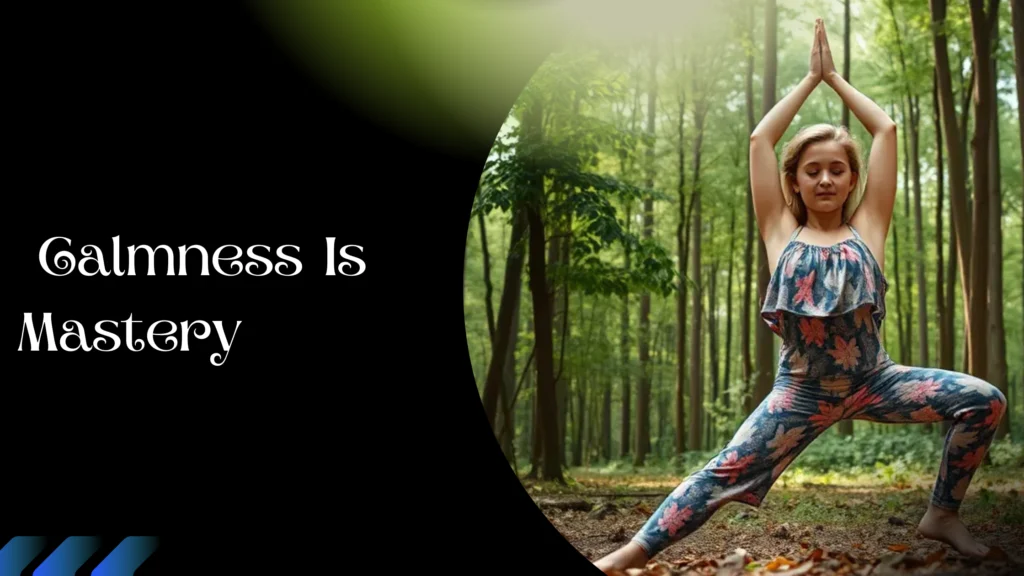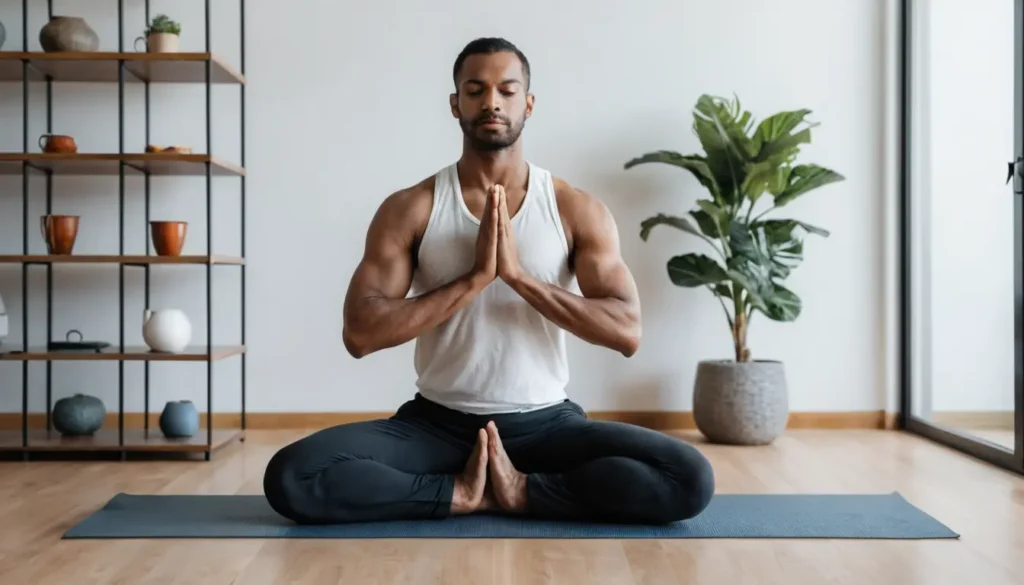In a world that constantly demands more from us, it’s easy to feel overwhelmed. Whether it’s managing work, relationships, or personal goals, the pressure to keep up can sometimes make us lose our sense of control. However, there’s a timeless piece of wisdom that stands as a reminder of the true source of power: “Self-control is strength. Calmness is mastery.” These words, often attributed to the philosopher and writer Tymoff, offer a profound insight into how we can cultivate inner peace and strength.
But what exactly does this mean, and how can we apply it in our daily lives? In this article, we’ll explore how self-control and calmness are not just ideals but practical tools we can use to achieve personal mastery and navigate life’s challenges with ease.
What Is Self-Control and Why Is It Strength?
Self-control is the ability to regulate your emotions, thoughts, and behaviors in the face of temptations and impulses. It’s about resisting the urge to react impulsively and instead choosing a more thoughtful, deliberate response.
At first glance, self-control might seem like an act of restraint, but it’s actually a demonstration of inner strength. Why? Because true strength isn’t about how much you can exert physically or forcefully. It’s about being able to stay composed and deliberate when faced with challenges, knowing that your reactions are rooted in intention rather than impulse.
The Link Between Self-Control and Emotional Strength
Emotional self-control allows us to navigate difficult situations without losing our cool. When you choose to pause, breathe, and think before reacting, you tap into a deeper, more grounded strength. It’s like having the power to defuse a ticking time bomb—without the explosion. By cultivating self-control, you build emotional resilience, which in turn helps you manage stress, overcome obstacles, and maintain clarity.
Self-Control in Everyday Life
You don’t need to be facing a monumental crisis to practice self-control. In fact, life is filled with small moments where our ability to pause and choose how we respond can make all the difference. For example, when faced with a stressful work deadline, instead of panicking or procrastinating, you can practice self-control by breaking the task into manageable pieces and tackling one thing at a time. This steady approach allows you to maintain a sense of strength even in the face of pressure.

Calmness Is Mastery: The Power of Staying Calm in Chaos
While self-control is about restraining your impulses, calmness is the state of being at peace with yourself, no matter the external circumstances. Calmness is a form of mastery because it reflects your ability to remain composed even in the midst of uncertainty or chaos.
The Mastery of the Mind
To truly master calmness, one must first master their mind. Think of the mind as a powerful engine—when it’s running wild, it can feel like a chaotic storm of thoughts, worries, and distractions. But when you learn to quiet the mind, you can harness its power, much like an engine running smoothly at full capacity.
Achieving calmness doesn’t mean you’re indifferent or passive. On the contrary, it’s an active choice to stay centered. It’s about resisting the pull of external stressors and remaining rooted in the present moment. And while it’s not always easy, calmness is something that can be cultivated with practice.
Why Calmness Is Mastery in Leadership
The most effective leaders are often the ones who can maintain their composure in the most stressful situations. Think of great leaders throughout history—whether they were managing armies, companies, or countries, their success often came down to their ability to stay calm and make rational decisions under pressure. The same principle applies to all aspects of life. Whether you’re in a tough negotiation, an emotionally charged conversation, or a personal challenge, maintaining calmness allows you to think more clearly and make decisions that align with your true goals.
The Role of Self-Control and Calmness in Achieving Personal Mastery
Personal mastery isn’t about perfection; it’s about developing the ability to govern yourself and your responses to the world around you. Self-control and calmness work hand in hand to help you gain this mastery.
Mastering Your Emotional Landscape
Emotions are a natural part of being human. They can inform us, motivate us, and even protect us. However, unchecked emotions can also lead to rash decisions and unnecessary stress. Self-control allows you to observe your emotions without being swept away by them. Calmness, on the other hand, provides the space to reflect and respond thoughtfully.
When you combine both, you gain the ability to navigate your emotional landscape with confidence. You can experience emotions fully, without letting them dictate your actions. Over time, this leads to personal growth and a deeper sense of fulfillment.
Building Resilience
Resilience is the ability to bounce back from setbacks. It’s an essential trait in both personal and professional life, and it requires both self-control and calmness. When faced with challenges, people who possess self-control are able to maintain focus and work through problems methodically, while those who remain calm are able to keep a clear perspective, avoiding the panic that might cloud their judgment.
Together, these qualities create a powerful combination that allows you to withstand adversity, adapt to change, and stay true to your path.
Practical Ways to Cultivate Self-Control and Calmness
If self-control and calmness are the pillars of personal mastery, how can you start building them in your own life? Here are some actionable steps:
1. Practice Mindfulness Meditation
Mindfulness is the practice of being fully present in the moment, without judgment. Regular mindfulness meditation helps you develop self-awareness, which is the first step toward gaining control over your reactions and emotions. By practicing mindfulness, you learn to observe your thoughts and feelings without immediately acting on them.
2. Take Deep Breaths
When you feel yourself getting overwhelmed, pause and take several deep breaths. Deep breathing has been shown to activate the parasympathetic nervous system, which helps your body relax and return to a state of calm.
3. Develop Healthy Routines
Routine is a powerful way to build self-control. By establishing habits that support your physical, mental, and emotional well-being, you reduce the likelihood of being caught off guard by stress. Exercise, eating healthy, and getting enough sleep are all key components of maintaining control over your body and mind.
4. Practice Delayed Gratification
In moments when you’re tempted to act impulsively—whether it’s eating something unhealthy, skipping a workout, or reacting to a frustrating comment—practice delaying that action. By waiting a few minutes or hours, you give yourself the space to reflect and make a more intentional choice.
5. Stay Centered with Affirmations
Daily affirmations can help you reinforce the mindset of self-control and calmness. Repeating statements like “I am in control of my actions” or “I choose peace over stress” can help rewire your brain to approach life’s challenges with a calm, centered attitude.
Conclusion: Achieving Mastery Through Self-Control and Calmness
The idea that “self-control is strength, calmness is mastery” is more than just a catchy phrase. It’s a guiding principle for achieving personal mastery in a chaotic world. By cultivating both self-control and calmness, you can create a life where you don’t just react to events but respond with intention and clarity.
Mastery isn’t about being perfect—it’s about finding balance, staying grounded, and confidently navigating life’s ups and downs. Whether you’re facing an important decision, dealing with stress, or simply trying to stay on track with your goals, remember: true strength lies in the ability to control yourself, and true mastery lies in maintaining calm amidst the storm.
Also read this article Bubble Skincare



